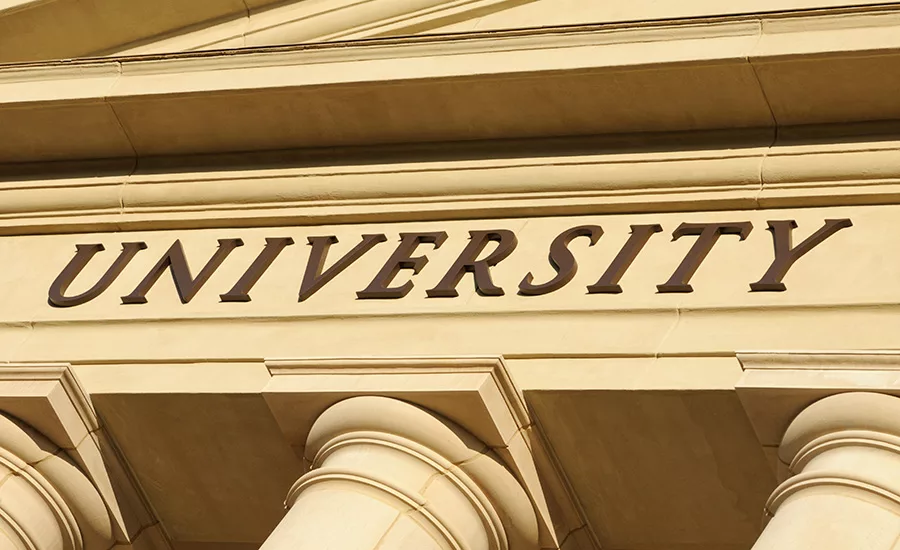Duke University Establishes Center for Science and Justice

A new center based at Duke Law School will apply legal and scientific research to reforming the criminal justice system.
The Duke Center for Science and Justice will bring together faculty and students in law, medicine, public policy, and arts and sciences to pursue research, policy and law reform, and education in three areas: accuracy of evidence in criminal cases; the role of risk in criminal outcomes; and addressing a person’s treatment needs as an alternative to arrest and incarceration. It will also examine the needs of formerly incarcerated persons who are re-entering society.
The center will be led by Brandon Garrett, the L. Neil Williams, Jr. Professor of Law and a leading scholar of criminal procedure, scientific evidence and wrongful convictions.
A central goal of the center is to convey the results of research to stakeholders in the criminal justice system. Examples of this work include:
-- Accuracy: Building on Garrett’s studies of the causes of wrongful convictions in cases of people exonerated by post-conviction DNA testing, Duke researchers are studying how to better explain to jurors the fallibility of evidence such as eyewitness memory and fingerprint comparisons.
-- Risk: Duke researchers are studying why judges often do not follow recommendations of risk assessments to divert offenders from prison to the community, and why more resources may be needed to promote alternatives to incarceration. Researchers are collaborating with the Durham District Attorney’s office to implement and study alternatives to pre-trial detention and to incarceration.
-- Needs: A report released by Garrett and his team documented how more than 1.2 million people in North Carolina have suspended driver’s licenses, the long-term consequences of those suspensions, and the resulting racial and class-based disparities. The study was made possible through a collaboration with the N.C. Justice Center and the N.C. Supreme Court’s Access to Justice Commission.
“Duke University is a leader in fostering collaborative interdisciplinary research, and Duke Law School is known for its leading criminal law and justice faculty and pioneering Wrongful Convictions Clinic,” said Garrett. “This history of applying deep scholarly inquiry to society’s most pressing challenges makes Duke the perfect place for a center that employs science to help achieve a better criminal justice system.”
Duke will launch the center Tuesday at an event featuring Yusef Salaam and Raymond Santana, two members of the Exonerated Five, formerly known as the Central Park Five. Salaam, Santana and three other boys wrongfully convicted and imprisoned for the 1989 beating of a Central Park jogger had their convictions vacated after another man whose DNA matched DNA from the scene confessed to the assault and rape. The men were the subjects of the Netflix series “When They See Us,” released earlier this year.
Tuesday’s event, which begins at 12:30 p.m. in the Law School’s Room 3041, is free and open to the public.
The center’s launch is supported by a $4.7 million grant from the Charles Koch Foundation, which supports research and educational programs in areas such as criminal justice and policing reform, free expression, foreign policy, economic opportunity and innovation. Additional support for Garrett’s research has been provided by Arnold Ventures, and the Center for Statistics and Applications in Forensic Evidence.
“Driven by innovative, research-based programs like this one, the nation is undergoing a major rethinking about how we approach criminal justice,” said Ryan Stowers, Executive Director of the Charles Koch Foundation. “We are excited to support Professor Garrett and the Duke Center for Science and Justice as they bring together scholars and practitioners from different disciplines seeking to allow more Americans the opportunity of a second chance and to determine practices that will prevent individuals from getting stuck in the system in the first place.”
Garrett’s research focuses on the non-partisan, evidence-based study and prevention of wrongful convictions and improving criminal procedure. Since joining the Duke faculty in 2018, he has established the JustScience Lab, which has produced new research and reports on such matters in North Carolina as disparities when juveniles are sentenced to life without parole, the consequences of fines and fees, the adequacy of resources for alternatives to incarceration, and best practices for eyewitness identification procedures.
Leading researchers from Duke’s School of Medicine will be closely involved in the center’s work, providing a public health perspective to criminal justice research. The Department of Psychiatry and Behavioral Sciences and Department of Population Health Sciences are already collaborating on research on such topics as the epidemiology of violence, the impact of services addressing mental health and substance abuse, and the effectiveness of criminal diversion and re-entry programs.
Through additional philanthropic support, Duke hopes to expand the focus of the center’s educational mission to supporting students who are entering criminal justice careers through scholarship aid, internship funding, a criminal-justice focused curriculum and opportunities for interdisciplinary engagement with graduate and undergraduate students. The Law School also hopes to launch a criminal justice clinic to provide training in how to litigate a criminal case at the pre-trial and trial stage.
“At Duke Law School, we are building on our deep strengths in criminal law to create new opportunities for students and faculty to take the lead in studying and shaping approaches to criminal justice reform,” said Kerry Abrams, James B. Duke and Benjamin N. Duke Dean of the School of Law. “The Center for Science and Justice will be an integral part of educating students who aspire to make the criminal justice system of the future better and fairer for everyone.”
Looking for a reprint of this article?
From high-res PDFs to custom plaques, order your copy today!







